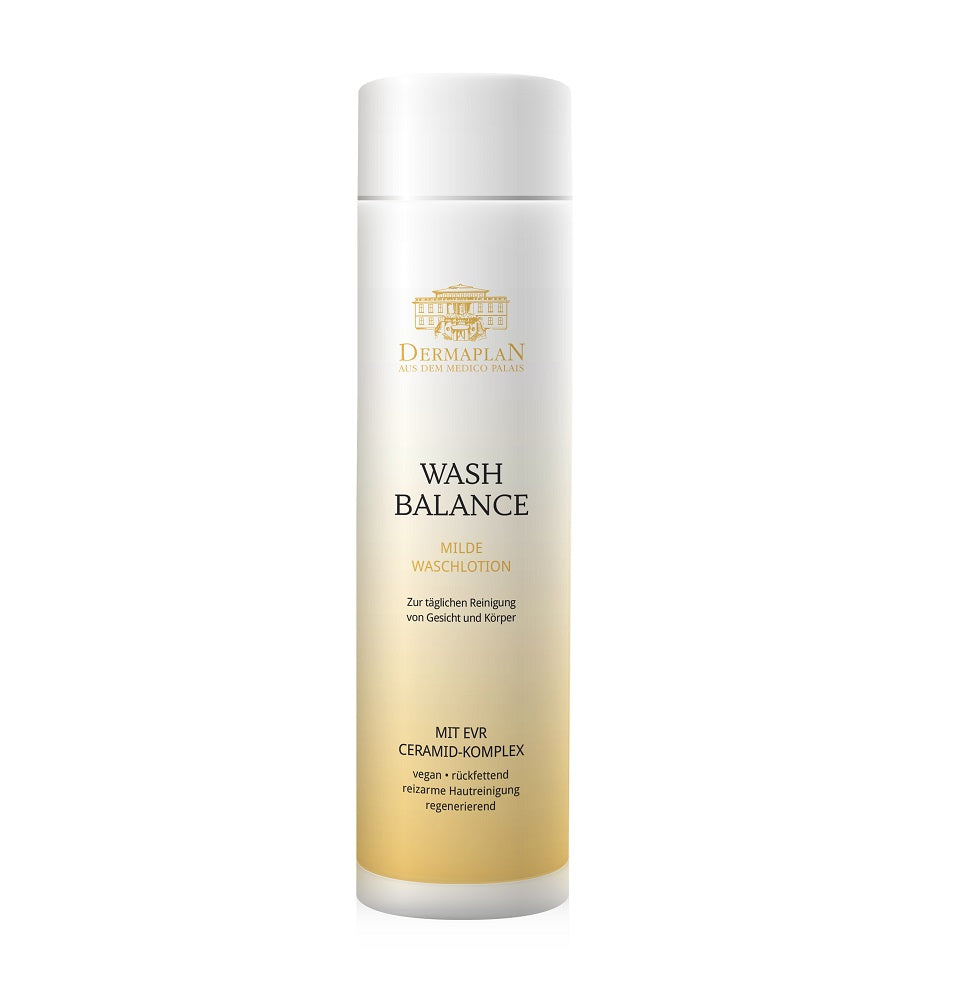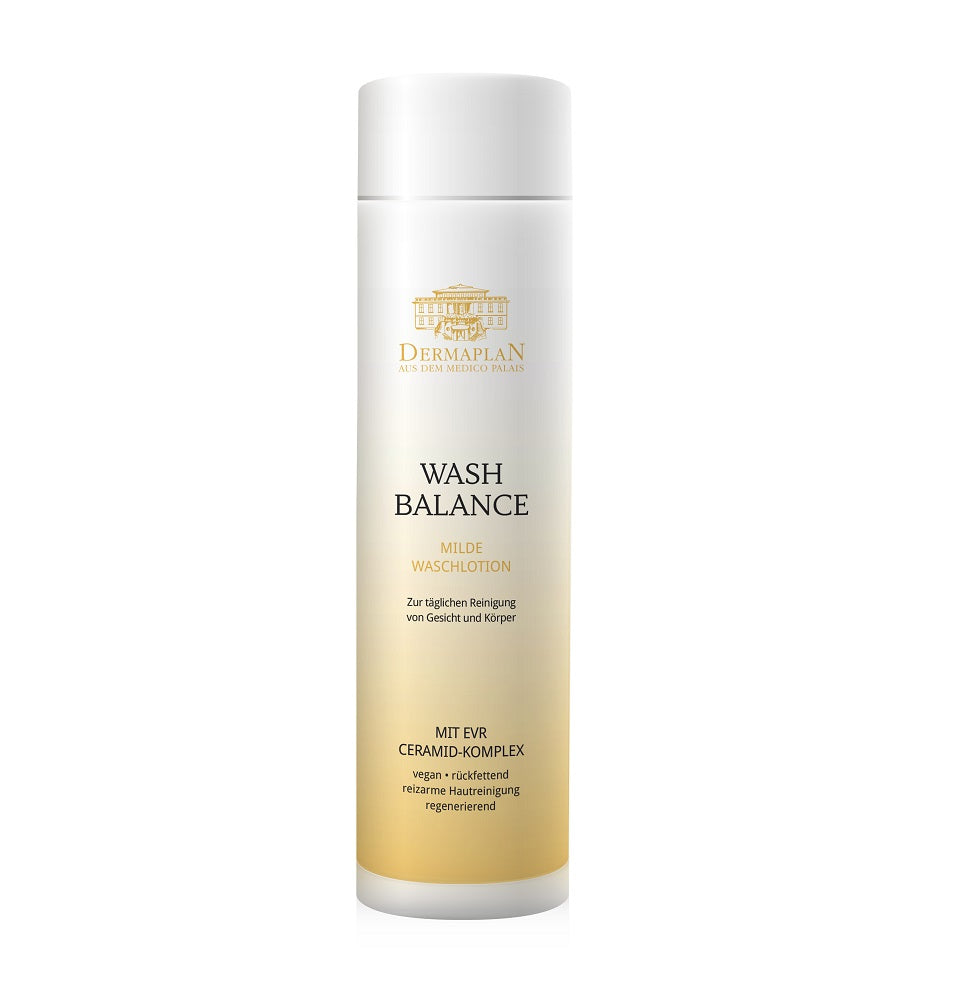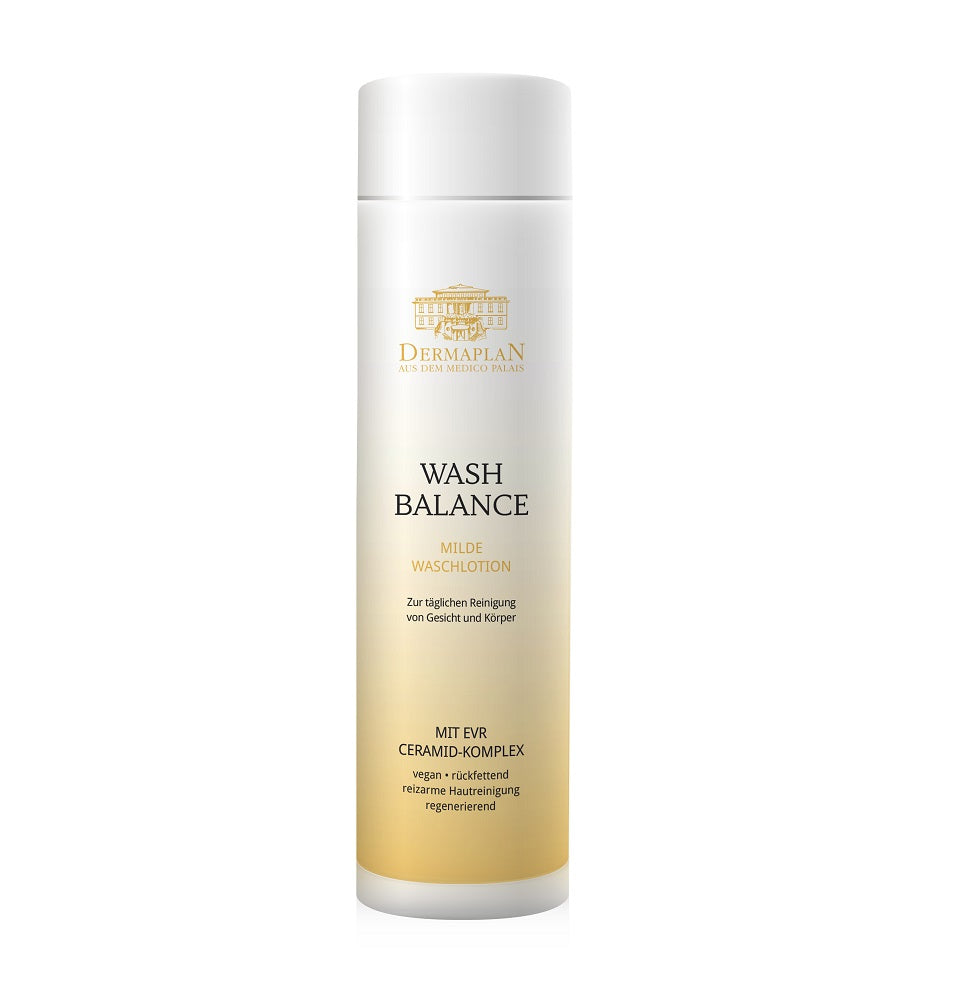Face & Body Care
Our Face & Body Care therefore works:
All products are vegan and are developed, produced, controlled, and dermatologically tested exclusively in Germany. 100% MADE IN GERMANY.
Daily skin care and its importance
Different skin types and their care needs
Care for your body and face skin with Dermaplan
Dermaplan
Dermaplan Washbalance for face and body 200ml
Use Wash Balance daily morning and evening to cleanse your skin as a moisturizing shower gel or to cleanse your face.
Regular price
€23,95 EUR
Regular price
€0,00 EUR
Sale price
€23,95 EUR
Unit price
per
Tax included.
Shipping calculated at checkout.
Split

FAQ Face & Body Care
How does facial skin differ from other parts of the body?
How do I properly care for my face and body?
Caring for your face and body from within – what does that mean?
What basic principles should be considered when caring for the skin of the face and body?


